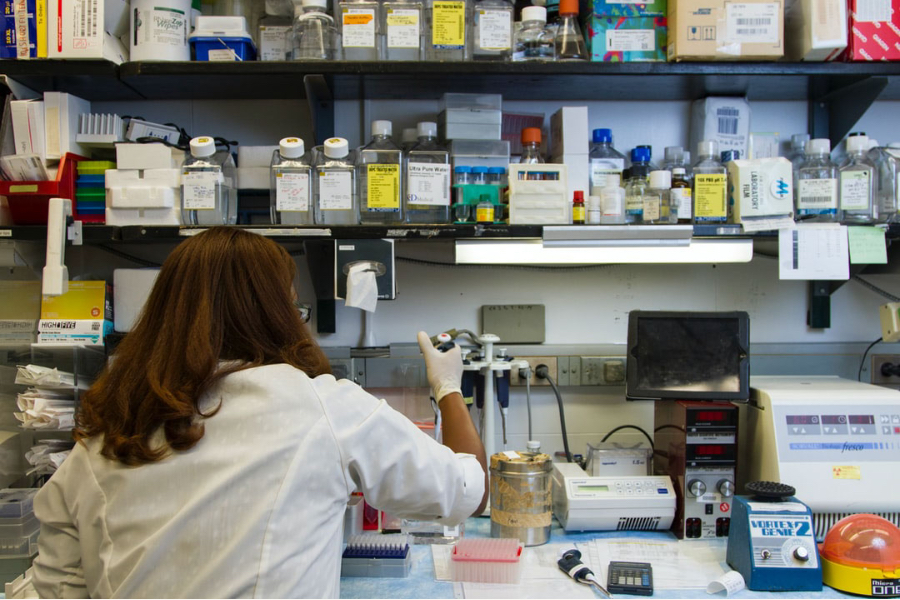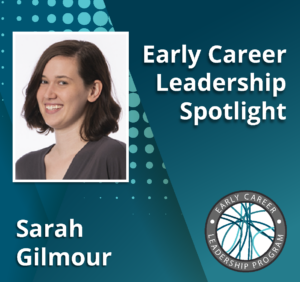As COVID-19 spreads across the world, members of the GSA community have had to face unprecedented challenges in their professional and personal lives. To stay connected during this socially distant time, GSA invites the scientists in our community to share how they are meeting these challenges, as well as their questions and worries.
If you would like to contribute to this series, please contact Communications Assistant Jacqueline Treboschi.
PI members of the GSA community share how they are adjusting to the remote teaching, lab shutdowns, and isolation caused by COVID-19.
Michael Buszczak, Professor, UT Southwestern
“I think establishing a routine is important for staying sane and productive during this unprecedented time. Towards this goal, my lab meets online on Mondays and Fridays. The Monday meeting is usually pretty quick and provides an opportunity for everyone to touch base with one another. I have also been asking each person to come up with a set of modest goals for the week. I realize none of us is going to be as productive as we are under normal conditions. But I still think it’s important to keep the members of the lab engaged in their research. Their goals for a given week can be as simple as reading a paper a day. On Fridays, one person presents [in] journal club. With all this reading, I hope, at the very least, that our group becomes much more familiar with the literature by the end of all this.”
Susan Dutcher, Professor, Washington University
“At Washington University in St. Louis, as at many other universities, we moved to online courses. I moderate one of the discussion groups for our Advanced Genetics course for graduate students. We had our first Zoom discussion group [in March]. I will admit that I was very worried about a discussion group online. The students rose to the occasion and were amazing. Everyone contributed; they were more interactive than [when] we meet in a room. I applaud them for their discussion of QTLs and their great questions and thoughts. My lab is sheltering at home. We had our first lab meeting yesterday and invited a colleague from Emory University to join us. It was so much fun to have an outside person with other insights. I would highly recommend inviting colleagues to join. The discussion was lively and we came up [with] more experiments to do when we can come back to [the] lab.”
Pam Geyer, Professor, University of Iowa
On keeping in touch with lab members: “The lab is small, so we don’t go over the 10-person limit. We have organized so that members come into [the] lab at different times to decrease contact. We have agreed that any member that is feeling ill must remain home. We feel it is important for members to come into work because they need to maintain their fly stocks and keep the multi-generation crosses going. We have not had [a] lab meeting yet—but I expect to start lab meetings up using Zoom.”
On teaching duties: “I am only teaching two small workshop classes, and these are continuing using Zoom. Since last week was spring break, we did not have either class. The first class is tomorrow—so we will see how that goes.
On lab ramp-downs: “To minimize duties for management of our stock collection, I went through and culled the collection greatly.”
On manuscript progress: “The work slowdown has both positive and negative consequences on manuscript preparation. We are benefitting from an increased attention to data analysis, but we are somewhat frustrated by our inability to respond to questions that arise from these analyses. We have also experienced delays in an editorial decision of a submitted manuscript—with the review greatly overdue.”
On mental health: “This is a major concern. Many of our trainees report extra stress, especially because it remains unclear how long this situation will continue. I co-direct the MD-PhD program here, and those trainees are particularly affected. Trainees in the clinical phase are being told that their clinical rotations will be virtual—no patient contact. They are all concerned about whether the needed skills will be obtained in such a fashion. Another consequence of COVID-19 is the shutdown of national testing services, which impacted trainees who were about ready to take the Step 1 licensing exam. National match day for graduating medical students was canceled this year, as well as any graduation ceremonies—this is hard for a group of trainees who have worked so hard. Our community has a wellness group [that] has posted links for their peers. They have also started a group chat through GroupMe—we will see how that goes. We plan to have bi-weekly informational meetings using Zoom, so that we can connect as a group.”
Thomas Merritt, Professor, Laurentian University
“Like, I think, many PIs, I’m not generally allowed in the lab and definitely not in the fly kitchen (OK, I do sneak in to make ramen for my lunch on occasion). I haven’t made fly food in a decade or been in charge of stock transfers for about as long. With the COVID-19 changes, faculty have been asked to take on any necessary tasks, like maintaining stocks, so that students do not need to travel. So this afternoon I had a Zoom meeting to organize my training. Two students have volunteered to show me where everything is and remind me, gently, how to make food. I think I’ve got this. My students, and my daughter eavesdropping on the conversation, were more skeptical.”
Detlef Weigel, Director, Max Planck Institute for Developmental Biology
“When discussing how to best reassure students and postdocs, my friend Jeff Dangl gave me some sage advice: Time is slowing down for everybody right now. Thus, everybody else’s papers, theses, preliminary data for grants, etc. are delayed. As a counterpoint to this, I’ve told my lab that we will do our best to accommodate delayed graduation dates as well as delayed lab departures because of delays in the conclusion of projects, difficulties in obtaining visas for the next job, or a drying up of new job openings. Because we are saving on consumables now, and because the arrival of new lab members will be inevitably delayed, there should be funds for extending contracts.”
Mariana Wolfner, Professor, Cornell University
On keeping in touch with lab members: “As situations changed around us, we continued our weekly lab meetings (by Zoom). We discuss our science, and recent papers that we’ve seen. It’s interesting and exciting, and also lends some normalcy to these stressful times. We added two additional Zoom meetings each week for all who wish to attend to talk, catch up personally, see each other’s families and pets, and encounter some levity like trying out new virtual backgrounds for Zoom. I continue to meet with each person in the lab individually at our normal weekly time, but now by Zoom. Lab members also meet with each other by Zoom for collaborative projects, and to touch base.”
On teaching duties: “Learning technical and pedagogical methods for remote teaching and rapidly modifying lectures, discussions and assignments, has been intense. But we’re getting there, with lots of help from an awesome TA (and this comforting song from M. Bruening). Cornell provides many helpful resources, though some days it’s a lot to watch so many instructional webinars. [The] most stressful [part] has been to have to turn on a dime whenever the landscape suddenly changes, and concerns about students who are widely dispersed, stressed, and may be facing health, family-health, or connectivity issues.
On lab ramp-downs: “This has been challenging. Experiments had to stop abruptly, including one that was the last thing needed to address a reviewer’s comments on a paper. It will take time to get everything back up once the shutdown ends. Terminating experiments caused a lot of stress to our students, postdocs, and staff (and me); everyone has been pretty shell-shocked. Despite this, lab members have been amazing in pulling together to make the shutdown as non-disruptive as possible. Different people took on different tasks—making sure essential flystocks would be transferred, generating to-do lists and shift-schedules, making sure that equipment was in stable shutdown states, and doing kind and supportive things for each other. Each person focused on one task, knowing that their colleagues were covering the others. Lab members are understandably worried about how the shutdown will affect the duration of their training. I’ve been trying hard to reassure them that although times are uncertain, we will all make it through this. We are only allowed into [the] lab to transfer our flies. We do this with a shift schedule of essential personnel, maintained via a Google calendar. Only one person is in [the] lab at any time, and the lab is sanitized at the end of each shift. Other than this, we work remotely: reading, writing, doing (or learning) bioinformatics, meeting in lab meetings, etc.”













